How many teams have made comebacks after a poor first half in IPL? Revisiting past tournaments
Bangalore in 2016 and Mumbai in 2015 made some of the biggest comebacks in the marathon tournament that should inspire those who are struggling in the current edition in UAE.
2 Min Read
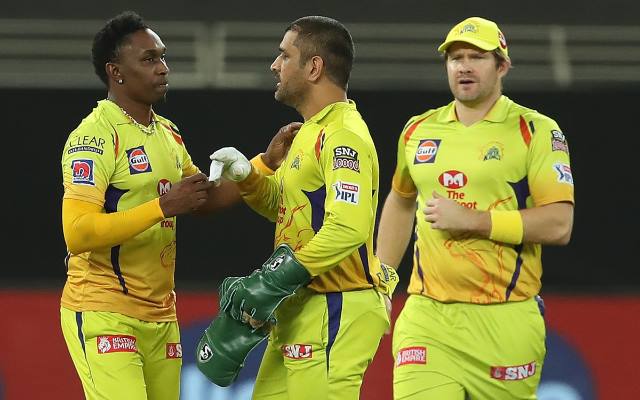

Chennai Super Kings v Sunrisers Hyderabad.(Photo Source: IPL/BCCI)
The Indian Premier League (IPL) 2020 has reached its middle point with all the eight participating teams playing seven games out of a total of 14. So far in this edition, Mumbai Indians have led the rest with 10 points followed by three teams — Delhi Capitals (DC – 10 points), Kolkata Knight Riders (KKR), and Royal Challengers Bangalore (RCB).
Sunrisers Hyderabad (SRH) are at the fifth position with six points. One of the biggest disappointments of this year have been Chennai Super Kings (CSK) that have lagged at No.6 with only three wins. One-time champions Rajasthan Royals (RR) are at the second-last position with six points from seven while Kings XI Punjab (KXIP) are at the last position with only one win from seven outings.
After its ordinary show in the first half, can MS Dhoni‘s Super Kings make a massive turnaround to make it to the playoffs? The yellow lions have never missed a spot in the last four place in 10 editions of the tournament so far and this will be a first if they do not maintain the tradition.
How many teams in the 12 years of the IPL that did very badly in the first half of the tournament still made it to the playoff phase?
Let’s have a look
2019 edition
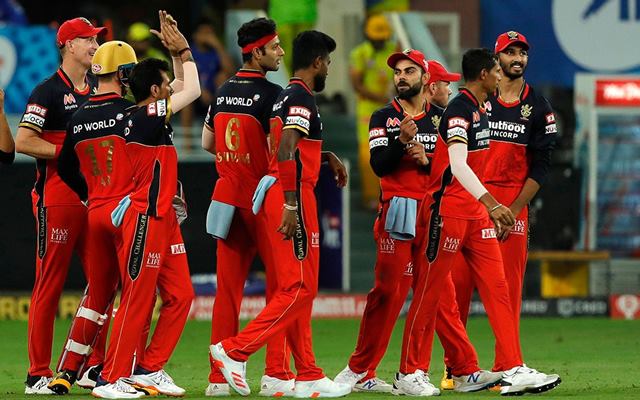
RCB had a horrendous first half in the 2019 edition with just one win out of seven outings (they got their first win in their seventh game). In their next seven matches, RCB won four, lost two while one game against Rajasthan had no result. But yet it was not enough for Virat Kohli’s team to make the playoffs and they ended at the eighth position with 11 points. RR also ended up with 11 points but finished ahead of RCB owing to a better net run-rate (NRR).
RR also won two out of their first seven games but could win only three in their next seven while one match ended without a result. Hyderabad won only three of their first seven matches and also three of their next seven but still made it to the last four, beating Kolkata and Punjab in NRR. The three other teams that made it to the playoffs — Chennai, Delhi and Mumbai — won six, four and four of their first seven games, respectively.
Teams that made playoffs (wins in first seven games): Chennai won five, Delhi won four, Mumbai won four, Hyderabad won three
2018 edition
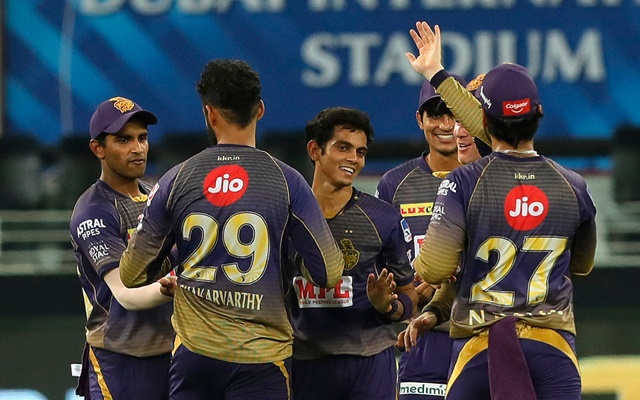
Kolkata lost four of their first seven games but yet did well to make it up by winning five of their next seven to make the playoffs. Defending champions of that year, Mumbai, won only two of their first seven games and failed to make the playoffs despite winning four of their remaining seven. Rajasthan, who made a comeback to the IPL along with Chennai that year, won three of their first seven and won four of their next seven to qualify.
Delhi (then Daredevils) lost five of their first seven games but could make the final result little different by winning only three of their next seven. Bangalore also won only two of their first seven but could not win more than four of their final seven to have failed to make the playoffs. The other two teams to qualify — Chennai and Hyderabad — won five of their first seven games. The biggest disappointment of the year was Punjab who won five of their first seven (in fact six) games but only one of their final seven (or eight).
Teams that made playoffs (wins in first seven games): Hyderabad won five, Chennai won five, Kolkata won three, Rajasthan won three.
2017 edition
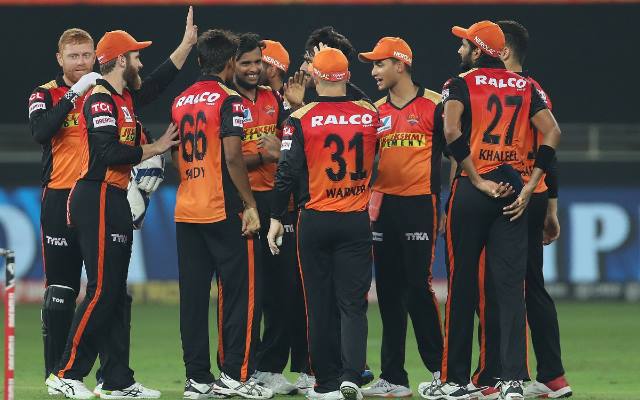
David Warner-led Hyderabad made the biggest comeback that year after an ordinary start with three wins out of seven. The defending champions that year then won four of their next seven while one match was inconclusive and made the playoffs. Delhi and Gujarat Lions could win only two of their first seven games and never could turn around with the former doing better than the next in the next seven (four wins against two).
Punjab won four of their next seven games after winning only three of their first seven to have failed to qualify. Bangalore won two of their first seven games but did even worse in their next seven by winning only one while one match was inconclusive. The three other teams that qualified for the playoffs — Mumbai, Kolkata and Pune — made a good start to their respective campaigns by winning six, five and four of their first matches, respectively.
Teams that made playoffs (wins in first seven games): Mumbai won six, Kolkata won five, Pune won four, Hyderabad won four.
2016 edition
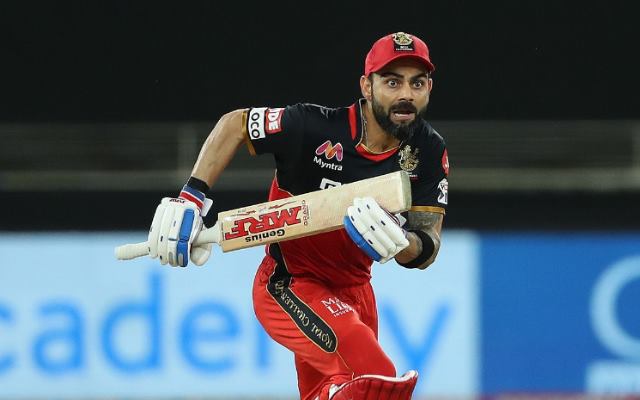
Bangalore, thanks to an in-form Kohli in fine form, made a real acceleration in the second half of the tournament (six out of seven) to make the playoffs after winning only two of their first seven matches. Rising Pune Supergiant also could win only two of their first five games but managed only three more wins to stop short of the playoffs. Punjab were another team that won only two of their first seven games but did no better in the second half with as many wins.
Defending champions Mumbai won only three of their first seven games but could not make it up by winning four of their next seven. Delhi had a great start by winning five of their first seven but lost the way thereafter to lose five of their next seven to crash out. Hyderabad, who won the crown that year, won four games each in the two halves. Kolkata also won four games each in the two halves. Gujarat Lions were the best performers in the first half with six wins out of seven games but lost three in their next seven.
Teams that made playoffs (wins in first seven games): Gujarat won six, Hyderabad won four, Kolkata won four, Bangalore won two.
2015 edition
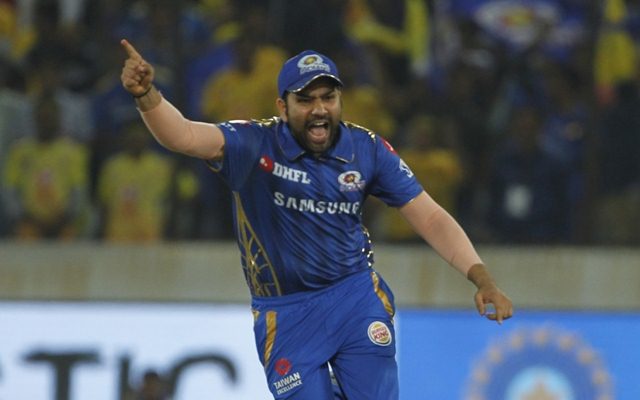
Mumbai registered perhaps the biggest comeback in the history of the IPL in this edition. Rohit Sharma’s side had only one crown under its belt at the time and had a disastrous start as it lost four consecutive games and could win only two out of their first seven. But MI then won six of their next seven to make the playoffs as the second-place holder and won the title clash against top position-holders Chennai. Punjab were little inspired by Mumbai as they too won only two of their first seven matches but did even worse in the second half by winning only one.
Bangalore also made a good comeback as they won three of their first seven (three losses, one no result) but remained unbeaten in five of their next seven (won four, one no result) to make the playoffs. Delhi, Hyderabad and Kolkata also won three of their first seven (Kolkata had one no result) but were not fortunate enough to make the last four. The other two teams that made the playoffs — Chennai and Rajasthan — won six and five of their first seven games, respectively.
Teams that made playoffs (wins in first seven games): Chennai won six, Rajasthan won five, Bangalore won three, Mumbai won two.
2014 edition
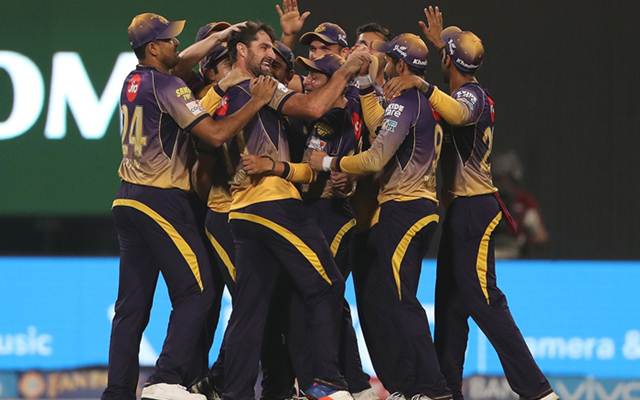
Two teams made a terrific comeback into the tournament in this edition and made the playoffs. One is Kolkata, under Gautam Gambhir, who won only two of their first seven matches but won all of their next seven to finish second in the points table and won the cup eventually. The other was Mumbai who lost five consecutive games in the beginning to end up with only two victories out of the first seven. They won five of their next seven to make the last four.
Delhi was another team that had a bad start with two wins out of the first seven but they remained winless in the second half. Rajasthan won five of their first seven but lost five of their next seven to crash out prematurely. Bangalore won three of their first seven but only two of their final seven. Hyderabad also tasted victory in three each in their first and next seven games. Table toppers Punjab won six of their first seven and five of their next seven. Chennai also won six of their first seven but also three of their next seven.
Teams that made playoffs (wins in first seven games): Punjab won six, Chennai won six, Kolkata won two, Mumbai won two.
2013 edition
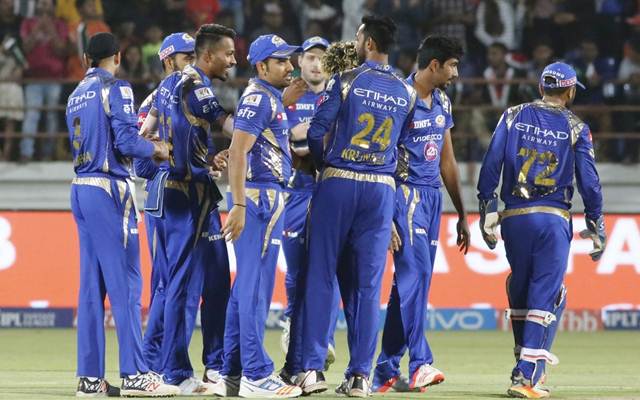
The 2013 edition also comprised nine teams but Sunrisers Hyderabad replaced the Chargers. All the four teams that made the playoffs in this edition had a good record at the halfway stage. While Chennai won six of their first eight encounters, eventual champions Mumbai, Rajasthan and Hyderabad won five of their first eight. Delhi could win only one of their first eight and two of their next eight. Pune won two of their first eight as well as the final eight.
Kolkata won three games each in the two halves. Punjab won four each in their two sets of eight matches. The biggest disappointment of the year was Bangalore who won six of their first eight games but only three of the next eight to have failed to make the knock-out stages.
Teams that made playoffs (wins in first eight games): Chennai won six, Mumbai won five, Rajasthan won three, Hyderabad won three.
2012 edition
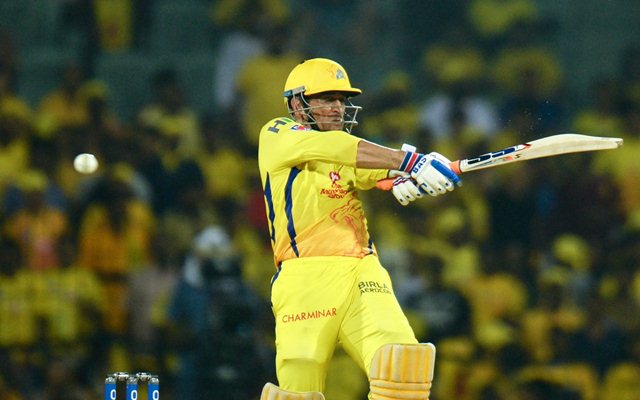
This edition featured nine teams with former champions Deccan Chargers playing their final edition. In this season, most of the names were having almost an equal win-loss record around the midpoint. Chennai, Kolkata, Mumbai, Pune, Rajasthan and Bangalore had four wins of their first eight though Chennai, Kolkata and Bangalore had three losses as one game for each was inconclusive. Of them, Chennai, Kolkata and Mumbai made the playoffs while Rajasthan, Bangalore and Pune missed out because of a poor second half (Rajasthan won only three of their next eight while Pune lost all their remaining games).
Bangalore won four of their last eight to finish on 17 points but still crashed out because of a poorer NRR against Chennai who also ended on same points. The Chargers had a poor final outing as they could win only one of their first eight games while one was inconclusive. Of the next eight, they could win only three which was not enough to guarantee them a spot in the playoffs. Delhi also made the playoffs winning six of their first eight games. Punjab considered themselves unfortunate as they won five of their final eight games after winning only three of their first eight but yet could not make the top four.
Teams that made playoffs (wins in first eight games): Chennai won four, Delhi won six, Kolkata won four, Mumbai won four.
2011 edition
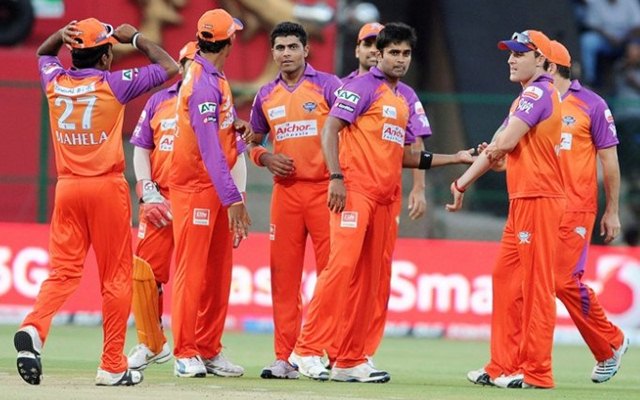
The 2011 edition featured 10 teams with the inclusion of Pune Warriors India and Kochi Tuskers Kerala. The format of this tournament was unique as five teams were divided into two groups and each team in one group played two matches against one team of the other group besides playing the other teams in their same group in as many games. The total number of matches each team played was still 14 and seven was the half-way stage.
The best comeback among the teams that made the playoffs in this edition was Bangalore as they won only three of their first seven (one was without result) but won six of their remaining seven to finish at the top of the points table. Chennai, Kolkata and Mumbai — the three other qualifying teams won five, four and five of their first seven matches, respectively.
Deccan Chargers, Punjab, Kochi and Rajasthan also won three of their first seven matches (Rajasthan had one no result) but none of them could match Bangalore’s late surge. The Chargers, Kochi and Rajasthan could win three of their remaining seven games. Punjab did better by winning four of their last seven but yet it was not enough to qualify for the playoffs. Delhi and Pune had the worst first seven games with two wins and five losses and both of them won two of their last seven, lost four while their one game was abandoned because of rain.
Teams that made playoffs (wins in first seven games): Chennai won five, Mumbai won five, Kolkata won four, Bangalore won three
2010 edition
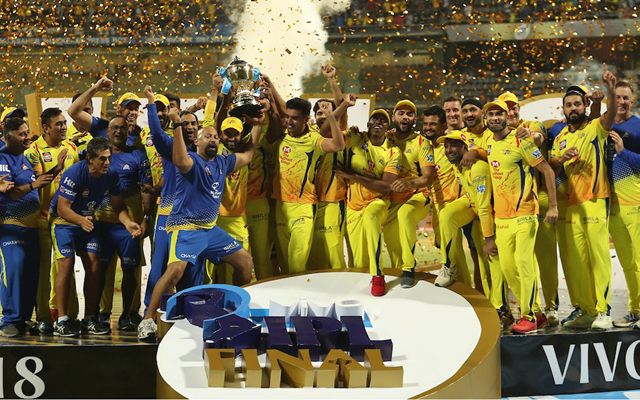
Chennai, who won their first crown that year, had a poor start with just two wins from the first seven games. But MS Dhoni’s side turned the script around by winning five of their remaining seven games to make the semi-finals (playoffs were yet to be in then). Defending champions Deccan Chargers won three of their first seven but came back strong to clinch five of their next seven to reach the semis.
Kings XI Punjab won only one of their first seven games but found little inspiration to end up with three wins overall. Delhi, Rajasthan and Bangalore won four of their first seven games each but Bangalore made the semi-finals owing to a superior NRR over Delhi. Kolkata won only three of their first seven but despite winning four of the last seven, could not make the last-four stage. Mumbai were the best performers at the halfway mark with six wins out of seven but lost to Chennai in the final.
Teams that made playoffs (wins in first seven games): Mumbai won six, Bangalore won four, Chargers won three, Chennai won two
2009 edition
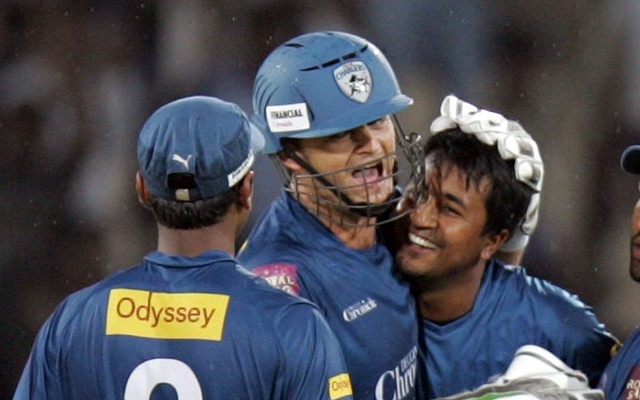
Kolkata Knight Riders won only one of their first seven games while one was inconclusive but could not make any turnaround and ended up with only three wins in the tournament played in South Africa to end last in the points table. For all the other seven teams, it was about the same till the halfway mark. Mumbai, Chennai, Rajasthan and Bangalore won three of their first seven games (the first three lost three while one was inconclusive) while Punjab and Adam Gilchrist‘s Chargers won four of their first seven.
But Mumbai and Rajasthan could win only two games each in their next seven to bow out before the semi-finals while Chennai and Bangalore won five of their next seven. Punjab also failed to qualify as they won only three in their next seven. Delhi were the best performers as they won five of their first seven to qualify as the table toppers. Chennai, Bangalore and Chargers were the three other teams in the last four.
Teams that made playoffs (wins in first seven games): Delhi won five, Chennai won three, Mumbai won three, Bangalore won three.
2008 edition
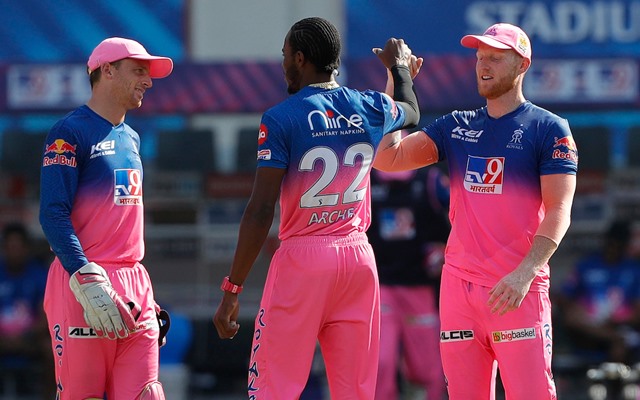
The four qualifying teams in the semi-finals had a good first half while the late starters could not make a turnaround. Punjab and Rajasthan, led by Shane Warne, won five of their first seven while Chennai and Delhi won four. Bangalore and Deccan Chargers could win only two of their first seven and finished in the last two positions in the points table.
Mumbai and Kolkata also had only three wins in their first seven and finished in the fifth and sixth positions with seven and six wins, respectively.
Teams that made playoffs (wins in first seven games): Punjab won five, Rajasthan won five, Chennai won four, Delhi won four
Download Our App